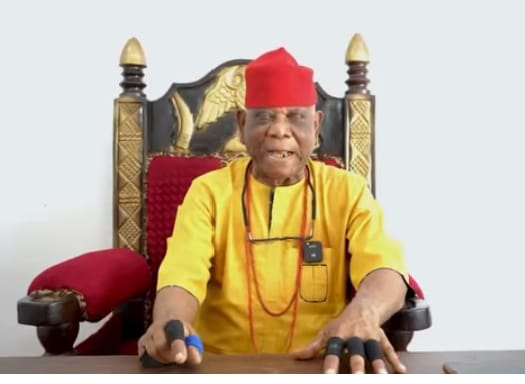The Obuzor of Ibusa, His Royal Majesty Professor Louis Nwaoboshi, has reiterated that the Anioma people of Delta State are historically part of Igboland.
He explained that efforts to secure proper regional recognition date back to 1939, when colonial authorities first drew Nigeria’s regional boundaries.
Speaking in Ibusa, the monarch noted that Anioma communities were wrongly placed in the Western Region, despite being Igbo-speaking and culturally aligned with the Eastern Region. He attributed this error to inaccurate geographical markers used by the British during boundary demarcation.
According to him, the correct boundary between the Eastern and Western Regions should have extended beyond Abudu, in today’s Edo State. “The boundary between North and West is not the River Niger, just as the boundary between North and East is not the River Benue. Therefore, the East–West boundary should have been beyond Abudu. We were placed where we should not have been,” he said.
Professor Nwaoboshi emphasized that communities such as Ibusa, Aboh, Ogwashi-Uku, Ubulu-Uku, and others in Delta North have always belonged to Igboland, linguistically, culturally, and historically.
“We have been shortchanged since 1939. Our forefathers began this struggle long ago. I am not the first. People from Aboh, Ibusa, and Ubulu-Uku were already advocating for correct placement even before the regions were consolidated,” he said. He added that he founded a cultural organization in 1980 to continue this longstanding advocacy and protect the Anioma identity.
The monarch also highlighted the contributions of Anioma leaders over the years, including a prominent figure from the region.
“Fortunately, Senator Ned Nwoko is one of our own. We encouraged him to continue the struggle. It’s in his blood because his father was among those advocating in 1939. These families have been at the forefront from the start,” he noted.
He explained that the name “Anioma” was created to unite Igbo-speaking communities in Delta North, especially after Igbo groups in Imo and Anambra had already strengthened their cultural identities. Historical records support that the agitation for proper recognition began well before Nigeria’s independence, with a 1981 newspaper report tracing the movement back to 1938 and identifying traditional rulers from Aboh, Ibusa, Isele-Uku, and Agbor as early advocates.
Professor Nwaoboshi blamed political reclassifications over the years for the identity confusion among some Anioma people, citing shifts from the Western Region in 1939 to the Mid-Western Region in 1963, and finally to Delta State in 1991.
He dismissed modern geopolitical labels like “South-South” as artificial and not reflective of historical boundaries.
In closing, the monarch called for unity and recognition of shared heritage. “It is time everyone understands that we are one. Awaken and embrace your brothers,” he urged.
Read also: 24 Schoolgirls Rescued from Kebbi Abduction Without Ransom Payment



